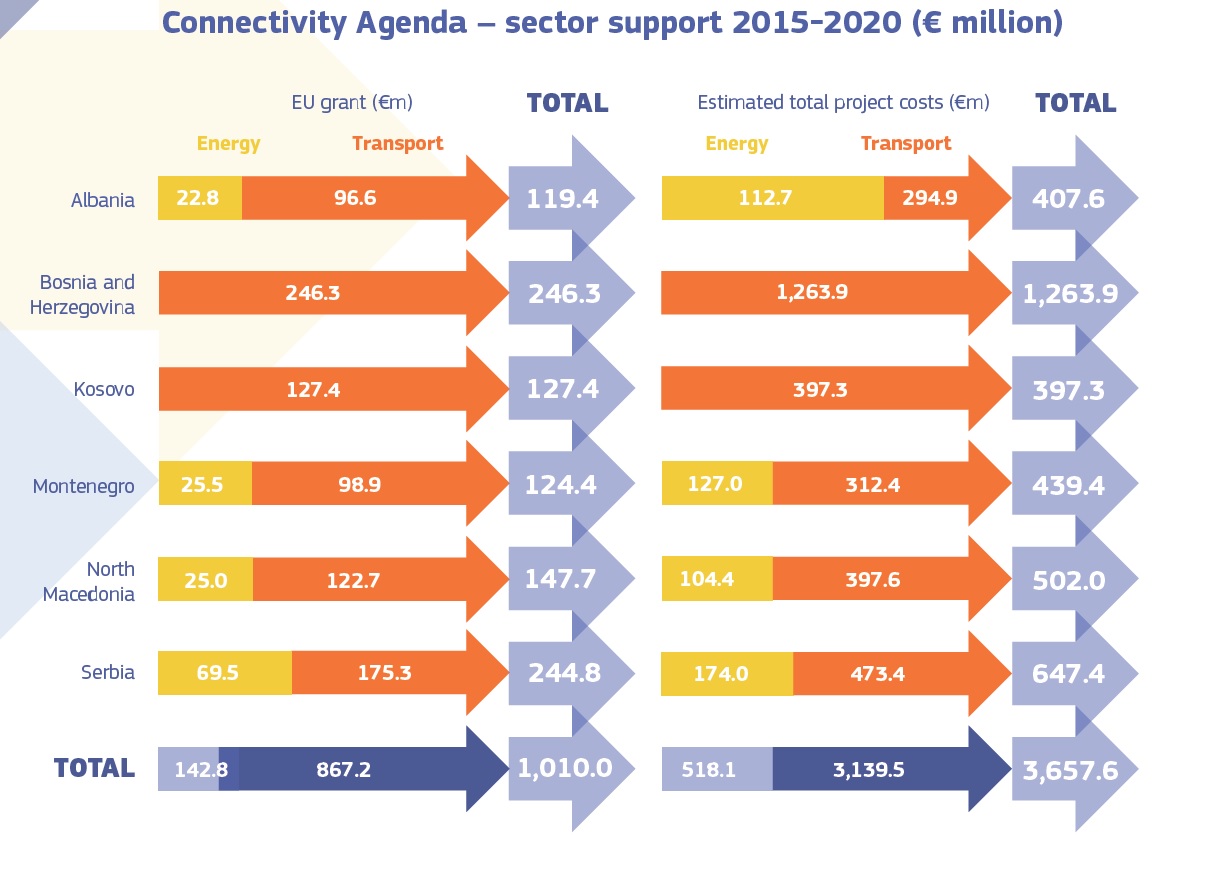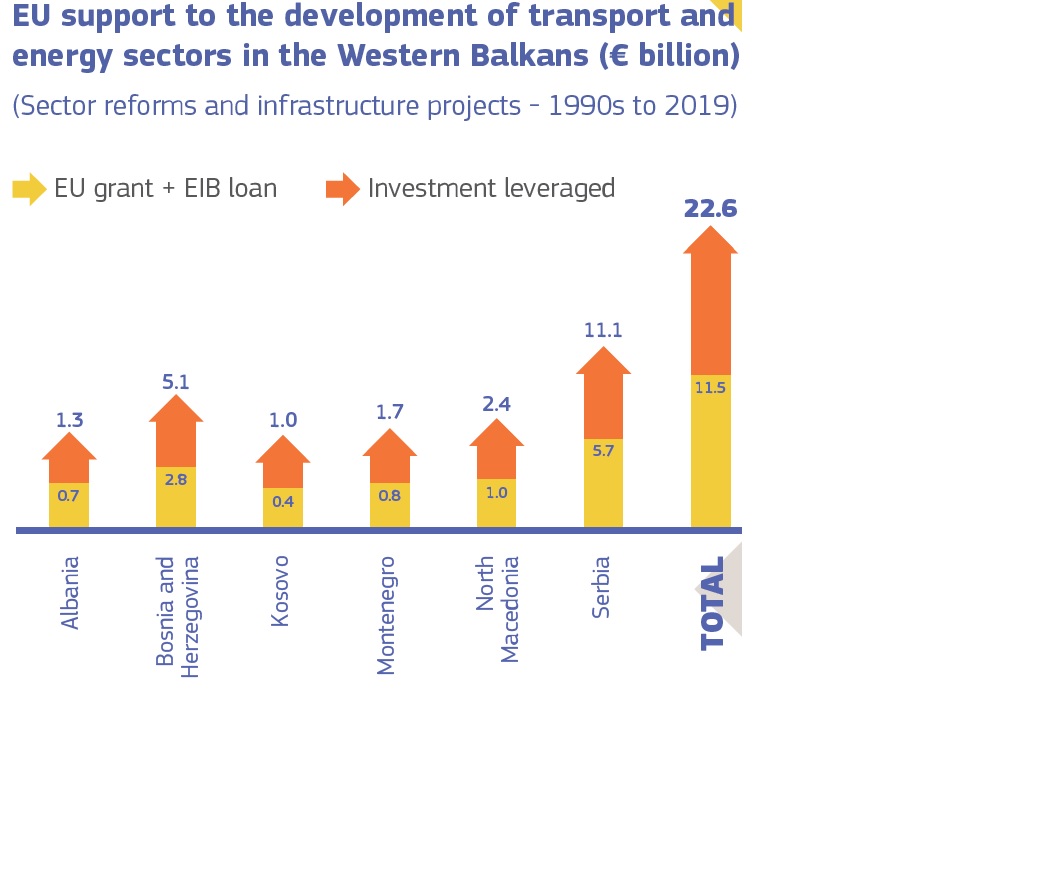Transport links get us to where we need to be, energy systems power our homes and businesses, and digital networks allow us to communicate. The Western Balkans is surrounded geographically by EU Member States. Improving transport and energy links – both in the region and with the EU – is therefore vital to stimulate economic growth and better standard for people in the region, Serbia included.
Reduction of travel times, simplified border-crossing procedures and improve road safety, improvement of air quality, increased trade in goods and services that brings more profit, ensuring supply of electricity or gas when people need it, even in tough winters, these are all very concrete benefits of the ‘Connectivity Agenda’ for transport and energy projects where EU pledged €1 billion in grants from 2015 until 2020.

This commitment built on solid work already done by the EU is followed up by Economic and Investment Plan for the Western Balkans adopted in October this year.
Safer, cheaper, faster, cleaner – benefits for energy and transport
During the Western Balkans Sofia Summit (10 November), Commissioner Olivér Várhelyi outlined the aims of the Economic and Investment Plan for the Western Balkans which mobilise up to €9 billion of grant funding. It is complemented by the new Western Balkans Guarantee facility, which can raise investments of up to €20 billion. By calculations, these investments could potentially increase the region's real GDP by 3.6%.
To kick-start the implementation, the focus is on flagship projects of transport and energy. EU 2020 Connectivity Package with six projects in the areas of sustainable transport and clean energy is the first step towards the implementation of the Economic and Investment Plan. The package also completes the pledge of €1 billion in grants the EU made from 2015.
The 10 flagship priorities in the Plan have been identified with considerable input from the leaders of the Western Balkans. The next step is to ensure their implementation to see real change on the ground swiftly, to boost the economic convergence of the region and, importantly, support the economic recovery in the wake of the COVID-19 pandemic.
EU is the biggest investor in region and the biggest investor in Serbia in the sectors of energy and transport. Serbia got the biggest share of the EU grants and loans in the region in those sectors.

For more information see EU CONNECTIVITY AGENDA for the Western Balkans brochure